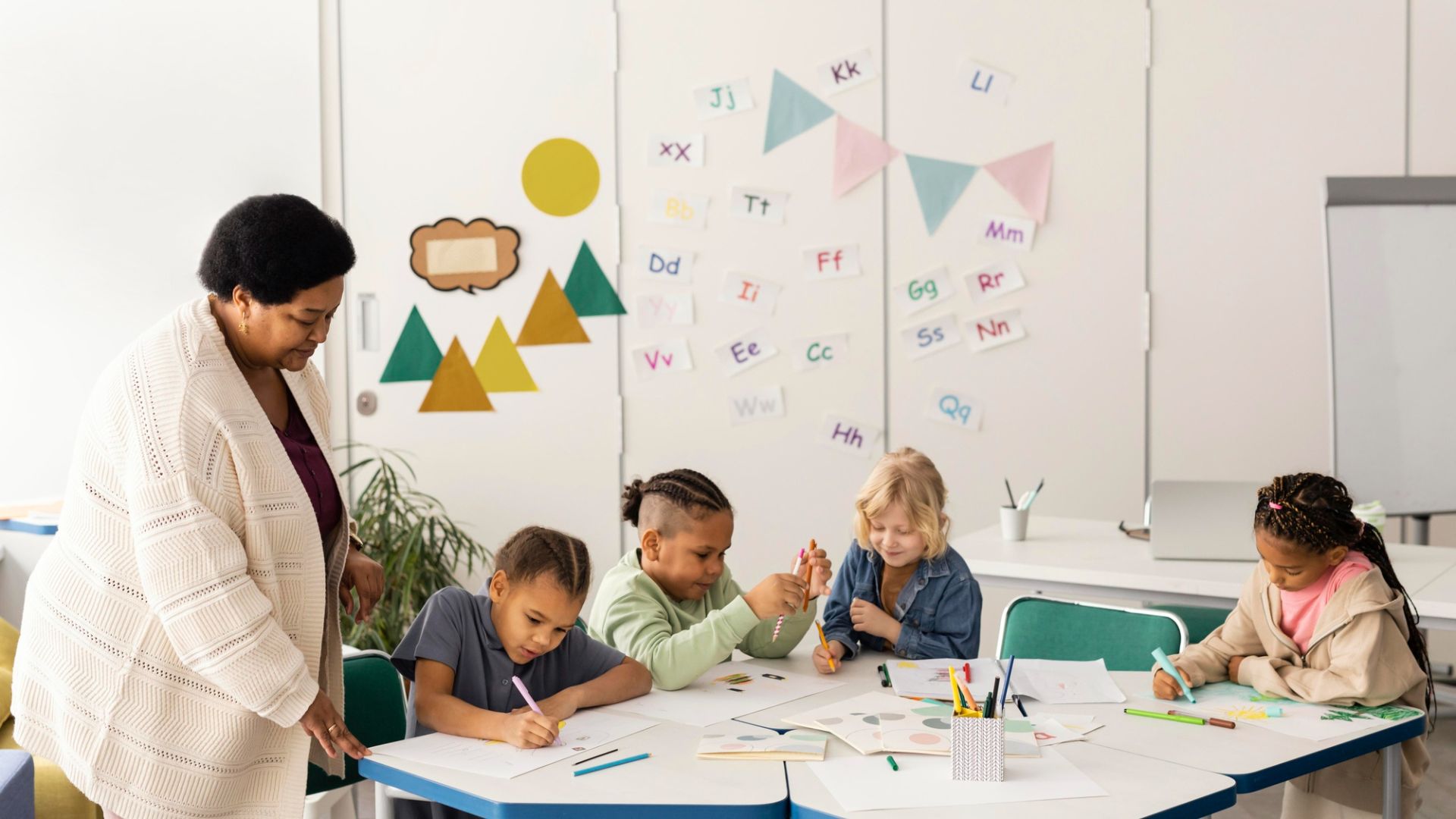How to pick the right preschool for your child
As you prepare to register your child in a preschool, you may feel anxious and unsure. Well, these are all valid feelings. I mean, it’s the first time your child would be in a new environment without you or familiar faces within reach. And if it’s your first child, you’d likely have many unanswered questions. While I understand your concerns, sitting around worried wouldn’t solve your problems. It’s time to take action! By knowing the importance of early childhood education and how to pick the right preschool for your child, you wouldn’t need to worry so much.
A preschool, also known as nursery school, pre-primary school, or creche, is an educational establishment or learning space that offers early childhood education to children before they begin compulsory education at a primary or elementary school.
Parents often ask, “When is the right time for preschooling?” While there isn’t an exact preschool age, many preschool programs admit children from ages 2 and 3. Most schools require this age group because children at this age show less separation anxiety and can benefit from group activities.
Although preschool education isn’t compulsory, in my opinion, and that of several researchers, it is necessary. High-quality early childhood education gives children the best start in life. It provides opportunities for your child to learn and develop.
Other importance of preschooling include;
- They teach your child how to follow instructions:
Through activities or games that require the teachers to give necessary instructions, children can learn to follow instructions. And as a parent, you will notice the difference in your child’s behaviour as they begin to listen carefully. You won’t need to repeat yourself all the time.
- They help your child build social and emotional skills:
Preschool provides a safe and challenging environment for children. They will learn how to share their toys, communicate their emotions nicely, show empathy and listen without interrupting the person speaking. All these social skills are necessary for success in the future and later academic years.
- They improve your child’s physical development
Physical development influences a child’s ability to learn. Fine motor skills and gross motor skills are necessary for a child to hold a pencil, write, and for whole body balance. Preschools equip children with the skills needed to feel physically capable and self-sufficient.
- Professional Support:
Quick reminder! It takes a village to raise a child. Preschool teachers are professionals trained to identify developmental delays and disorders. Discovering these issues earlier can help you take the necessary steps to ensure high academic performance in later years.
- Preschool provides opportunities for play:
Research shows that play is a necessary part of early childhood development. Preschooling prepares children for more technical learning and provides them with essential skills needed in life. A quality preschool offers extensive opportunities for children to explore the arts, creative processes and literature.
Choosing the right preschool for your child
Not all preschools are of a high standard. Choosing the wrong or a substandard preschool can do more harm than good. Here’s what to look out for when picking a preschool.
- Visit the school yourself: Firstly, before registering your child in any Preschool, visit the school while they are in session. Observe the environment, amenities available, and the attitude of the teachers.
- Verify the license is up-to-date: Ensure the Preschool is registered and licensed.
- Environment: I would suggest you consider safety and hygiene first. You don’t want to send your child to an unsafe or dirty environment. Are there emergency exit doors? How accessible is the Preschool? Is there security personnel in place? Do they have an evacuation plan in case of a security threat or breach? On the issue of hygiene, dirty environments can cause your child to fall ill. Check the situation of the toilets provided.
- Amenities and facilities available: Check out the structure and amenities accessible in the school. What activities are accessible to the children? Will they be playing or watching TV all day? Are there educational activities or toys available to these children? Some facilities to look out for include; Libraries, creative play areas, nature corners, spacious classrooms, and outdoor playing areas.
- Teachers’ quality of education: A Preschool teacher should have formal post-high school training. A teacher with a degree in child development or any relevant field will serve more purpose to your child than one with just knowledge of how to take care of a child.
- Positive teachers: Positive teachers are happy and free-spirited. They approach situations with smiles and patience. Observe how the teachers respond to the children. Do the teachers yell or respond calmly? Do the teachers enjoy working with children? Do the teachers encourage self-expression?
- Communicate with the school’s leaders: The director’s or principal’s eagerness to meet with you and let you observe teachers shows how transparent the school is. Ask the principal about a school’s curriculum and communication strategy. Are there group chats, weekly newsletters or Parents’/Teachers’ meetings?
Finally, before deciding which Preschool is right for your child, you should speak with parents whose children are registered there. Who knows, you may discover a thing or two.
The process of finding the right Preschool for your child can be nerve-racking. However, asking the right questions can make it so much easier. Remember, Preschooling gives your child an advantage in developing academic and social-emotional skills.

